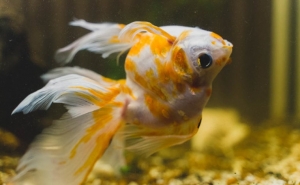Did you know that a pet's well-being isn't just about treating illness but also about preventing it? Just like humans, pets thrive when their health is approached from a holistic perspective—considering not only their physical health but also their mental, emotional, and environmental well-being. By embracing a holistic approach, you can ensure your furry companion lives a longer, healthier, and happier life.
What Is Holistic Pet Wellness?
Holistic pet wellness means looking at the whole picture when it comes to your pet's health. Instead of simply treating symptoms, this approach focuses on prevention, balance, and overall well-being. It incorporates a blend of traditional veterinary care and natural healing methods, ensuring that pets receive comprehensive care tailored to their unique needs.
A holistic pet wellness plan includes:
- Proper nutrition
- Regular exercise and mental stimulation
- Preventative healthcare
- Stress management
- Natural and alternative therapies
By making conscious choices about your pet's lifestyle, diet, and healthcare, you can create the perfect foundation for their well-being.
- Nourish with a Balanced Diet
A healthy pet starts with proper nutrition. Feeding your pet a nutrient-rich, species-appropriate diet can help prevent illnesses, boost immunity, and maintain a healthy weight.
Tips for a Holistic Diet:
- Choose whole, natural foods: Look for high-quality pet food with real meats, vegetables, and healthy fats, avoiding artificial additives and preservatives.
- Incorporate fresh food: Adding raw or lightly cooked meats, vegetables, and probiotics can enhance digestion and improve overall health.
- Stay hydrated: Ensure your pet always has access to clean, fresh water to support kidney function and energy levels.
- Consider supplements: Omega-3 fatty acids, glucosamine, and probiotics can boost joint health, digestion, and skin condition.
Working with a veterinarian to create a balanced and personalized diet ensures that your pet receives the proper nutrition for their breed, age, and health needs.
- Keep Them Active and Mentally Engaged
Exercise is essential for both physical health and emotional well-being. Lack of movement can lead to obesity, joint problems, and even anxiety.
How to Keep Your Pet Moving:
- Daily walks and playtime: Whether it's a game of fetch, tug-of-war, or interactive toys, keeping pets active prevents boredom and keeps their muscles strong.
- Enrichment activities: Puzzle feeders, scent trails, and agility training challenge your pet's mind, reducing stress and destructive behaviors.
- Socialization: Dogs benefit from playdates, daycare, or trips to the park, while cats enjoy climbing, hiding spots, and interactive play.
A physically active and mentally stimulated pet is a happy and well-adjusted one!
- Prioritize Preventative Healthcare
Holistic wellness means staying ahead of health issues rather than waiting for them to appear. Regular vet check-ups help catch potential problems early, allowing for better treatment outcomes.
Key Preventative Measures:
- Routine check-ups: Annual vet visits ensure that your pet stays up to date on vaccinations, parasite control, and overall health screenings.
- Dental health: Poor oral hygiene can lead to serious infections and organ damage, so brushing and dental treats are important.
- Grooming and skin care: Regular brushing, nail trims, and checking for skin irritations prevent discomfort and infections.
The team at Thrive Vet Care in Airdrie, we want every pet to live their best life. With expert care and guidance, you can ensure that your pet receives the best preventive treatments tailored to their individual needs.
- Manage Stress and Emotional Well-Being
Just like humans, pets can experience stress, anxiety, and emotional distress. Addressing these factors plays a vital role in their overall wellness.
Ways to Reduce Stress:
- Create a calm environment: Provide a cozy resting space away from loud noises and busy household activities.
- Use calming techniques: Massages, aromatherapy (pet-safe essential oils), and soothing music can help anxious pets relax.
- Stick to a routine: Pets thrive on consistency—regular mealtimes, walks, and bedtime routines give them a sense of security.
- Recognize behavioral changes: Excessive barking, hiding, or destructive behavior may indicate stress—consulting with a vet or animal behaviorist can help.
You can create a safe and happy environment that promotes long-term well-being by prioritizing your pet's mental and emotional needs.
A Holistic Approach Leads to a Happier, Healthier Pet
Embracing holistic pet wellness means taking a proactive and well-rounded approach to your pet's health. You can give your pet the best possible life by focusing on nutrition, exercise, preventive care, stress reduction, and natural therapies.






